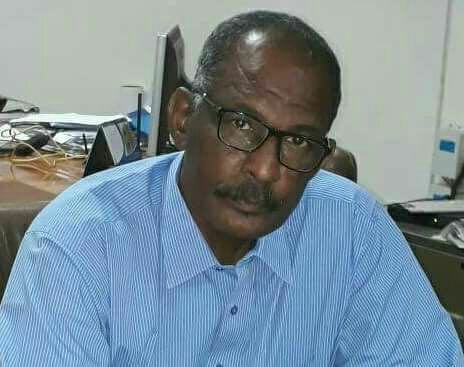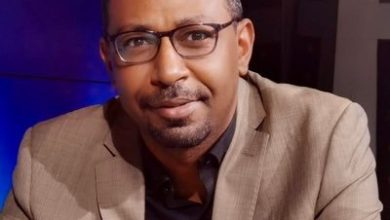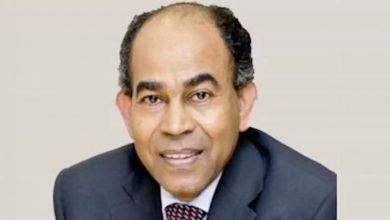Opinion
The Selection of Hamdok: Hidden Details and Circumstances (2)

By Mohamed Wada’a
The nominations committee had made significant progress in discussing candidates proposed by the Freedom and Change forces for the position of Prime Minister. The discussions were based on unanimously agreed criteria, the most important of which was that the nominee must not hold dual citizenship. This condition posed a major obstacle to the nomination of Hamdok, and although there was a suggestion for him to renounce his second nationality, it was not accepted. Consequently, the committee’s meetings were suspended, and a hastily organized workshop was held to remove the dual citizenship requirement. The workshop’s recommendations were passed through questionable means, and it later emerged that two blocs, including the Sudan Call bloc, had not been consulted.
Abu Ali, an Emirati national with multiple offices, the most notable of which was in the Al-Nefeidi complex, operated under the name “Arab Development Council.” He engaged with some leaders of the Freedom and Change coalition, aiming to persuade those opposed to Hamdok’s nomination. His efforts included extensive communication with the leadership committees of the coalition, such as the communication committee, constitutional document committee, and nominations committee. Despite the late Imam Sadiq Al-Mahdi’s opposition to Hamdok’s nomination, Salah Manaa was one of the most enthusiastic proponents.
In my view, Abu Ali’s efforts, known for their generosity, significantly influenced support for Hamdok’s nomination and weakened backing for Dr. Montaser Al-Tayeb, especially from the bloc that initially nominated him. This bloc suddenly shifted its support to Hamdok.
After multiple attempts and inducements, including approval from the National Umma Party, only the Sudanese Ba’ath Party within the Sudan Call bloc continued to oppose Hamdok’s nomination. Supported by its political bureau, the party’s stance was recorded in the committee’s minutes and the Central Council meeting, despite intense last-minute pressures aimed at securing consensus.
The late Imam Sadiq Al-Mahdi resisted Hamdok’s nomination but faced enormous pressures from within and outside the Umma Party, which ultimately led the Sudan Call bloc to become the last group to agree. Up until that point, the Freedom and Change forces had sought decisions through consensus wherever possible. Opposition from the Umma Party and the Sudanese Ba’ath Party should have been sufficient to block Hamdok’s nomination. Nevertheless, other bloc components—such as the Sudanese Congress Party, the National Unionist Party, the National Party, the Sudanese Alliance, Haq Movement, and Veterans—had already agreed early on to Hamdok’s nomination.
The constitutional document prohibited dual citizenship in Article 17/2 for positions such as Prime Minister, Defense Minister, Interior Minister, Foreign Minister, and Minister of Justice. It stipulated that candidates for these positions must not hold any other nationality, with exceptions requiring agreement between the Freedom and Change coalition and the Sovereignty Council for the Prime Minister’s post, or between the coalition and the Prime Minister for ministerial posts. However, no such agreement was reached for the exception mentioned in Article 17, and constitutional compliance was largely ignored—even symbolically.
On August 22, Dr. Abdullah Hamdok was sworn in as Prime Minister before Sovereignty Council Chairman General Abdel Fattah Al-Burhan, in the presence of Lt. General Shams Al-Din Kabbashi, Ms. Aisha Musa, and Mr. Mohamed Al-Faki, members of the Sovereignty Council. By the time the cabinet was approved and announced on September 8, the nominations committee’s approach had subtly shifted. Rather than broadening participation, its membership was diluted through dual representation.
In his first meeting with the nominations committee, Prime Minister Hamdok proposed adding new criteria, including geographic representation and ensuring that “everyone sees themselves in the government.” This request disrupted the committee, leaving key posts like Agriculture, Livestock, Transport, and Infrastructure unfilled until the final moments.
Over the next two weeks, Hamdok held several meetings with the committee, proposed candidates, hinted at others, and requested changes—such as moving Dr. Omar Manis from Federal Governance to the Ministry of Cabinet Affairs, a post the Civil Society bloc insisted should go to Madani Abbas Madani (a separate story). Similarly, despite the committee’s criteria favoring reducing ministries and creating councils for Education, Culture and Media, Federal Governance, and Religious Affairs, Nasser Al-Din Abdul Bari bypassed three more qualified candidates for the Ministry of Justice: Ibtisam Sanhouri, Dr. Othman Mohamed Ali, and Dr. Mohamed Abdul Salam. Likewise, Walaa Al-Boushi rose from fourth place to become Minister of Youth and Sports, surpassing Dr. Mahjoub Saeed, Dr. Jaafar Sid Ahmed Qureish, and Majid Mohamed Talaat Fareed.
To be continued…



